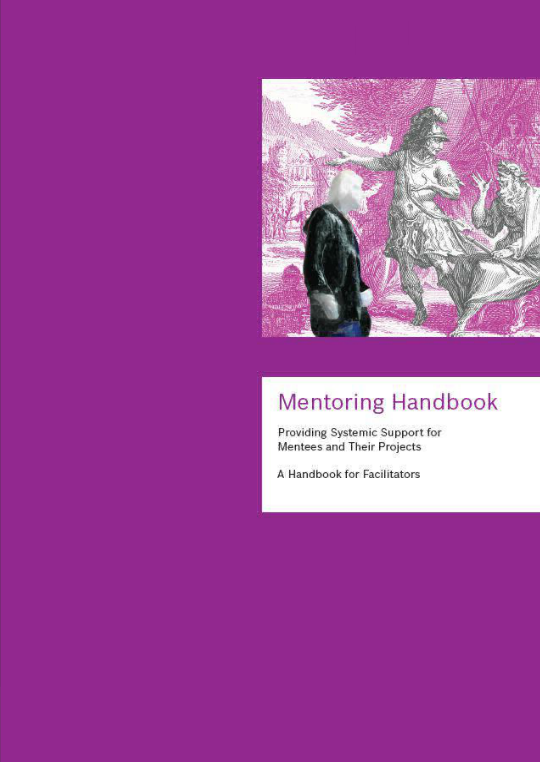I am in front of a group and the group needs my support. What should I do? A facilitator could start to give orientation by advising the group what to do. Another option is to start asking questions and helping the group to come to the solution on their own. Both approaches accomplish a goal. On the other hand they follow a different inner logic and have implications on our role as facilitator. Let us illustrate the limitation of advice with another example.
Contents
Buying a complicated device
A clerk in an electronics store will often bombard you with a cloud of confusing terminology you do not understand. Very often this does not enable you to make an informed decision but leaves you confused.
What if the clerk would start asking you open questions and listen to your needs? And responding to your answers give you oversight about the diverse options? Maybe in some situations this would help you more to find out, what these needs are and help you to take a decision what product you really prefer.
In trainings related to participation the latter approach can often be the better one. Especially when the goal is not to simply mobilize people to do something, but to empower them to decide for themselves what they want to do based on their needs and their own goals. On the other hand: do you always want to think deeper about your purchase decisions and trust in the competence of the clerk could be the better strategy?
The Exclamation Mark: Advice
Advice involves interpreting the problem and formulating a unique solution. Presentations, comments, or active suggestions from a facilitator are also “advice” in this sense.
- “In my opinion, the problem appears to be…”
- “This is what I can do for you…”
Advice is perhaps best described as an exclamation mark. It expresses a point of view or a solution that began in the mentor's mind. From the mentee's perspective, it is: "Tell me how you would solve this problem." Or sometimes even: "Dear facilitator, solve this problem for me." Giving advice typically causes the learner to take a more passive role in developing a solution. It transfers responsibility for finding a solution to the facilitator.
Advice
- Based on the skills and knowledge of the advisor
- Focused on the solution
- Proposals, presentation of the solution
- Assessments and tips
- Transfer of knowledge
- Actively offering suggestions and contacts
- Active role in team processes or meetings
However, in order for facilitators to be able to give advice, they have to become more involved in their learners activities or to aquire specific knowledge. Typical examples of this include when a conultant is actively involved in a team process: She moderates a meeting or offers her contacts and resources. Seeking advice is a quick solution and helps us divide our labor: If we do not have the capacity to understand a problem or to solve it, we look for someone who can help. We do not have to learn anything and can arrive at a solution very quickly.
However, when one asks for advice, one problem can involve two advisors and four opinions. What then? This common situation illustrates one limitation of seeking advice: It quickly brings other people into the context, which can then become complex. On a related note, the quality of the advice depends on the mentor’s understanding of the situation at hand. If a mentor does not, then his or her advice decreases in value. And since it requires us to show our expertise and find the best possible solution, giving advice is a challenging cognitive and psychological task. In conclusion, we can say: Facilitators should exercise caution when giving advice. Are you sure that you really understand the problem from your learner’s perspective? And is your solution as well for the learner easy to implement?
The advice-related approach is often at risk to give answers on questions that are not especially asked or it makes the consultant think and work much more than the „principal“ (or here: the learner). But shouldn‘t the learner be challenged more and work harder on finding answers to their problems?
The Question Mark: Coaching
The opposite of the energetic exclamation mark is the question mark. Questions can be very powerful. Think of the clerk: The customer will eventually make a better and more reflected choice.
Coaching opens the process also to decision that the coach had not foreseen, because coaches pose challenging questions to help their clients or, as they are sometimes called, “coachees” identify possible solutions and think about them independently.
Coaching
- Based on the coachee's abilities and knowledge
- Enables coachees to work on and find solutions
- Coachees choose goals, pace, and when the process should end
- Focuses on the process
- Facilitates the incorporation of knowledge
- Questions from an observational perspective: what, when, how, if...
This close relationship to systemic qualities like autonomy, the validity of multiple perspectives, and rationality gives some authors cause to use the term “systemic coaching.” Coaching's aims is generally indepence:
“In systemic coaching, our role is to clearly support our coachees in solving their problems independently and responsibly. In their private lives, in their professional ones, or anywhere in between.” [1].
While an advisor says, “I’ll give you a solution”, a coach says:
- “I’ll help you to understand your concerns and find a way toward a solution.”
Flexibility
With regards to this example, a clerk’s strategy might also change. If he’s smart, he might be flexible enough to take a different approach if he notices confusion in your questions and body signals. A shift in awareness can make him ask first open questions and listen carefully:
- What do you want?
- How are you going to use this device?
And if he feels that this approach is leading to more confusion he might ask:
- Should I explain or propose you two products?
Also a facilitator needs to develop such flexibility. Sometimes we are still in front of a group, giving advice and sharing expertise, but more often we choose the background, or observe from the side, or moderate. Sometimes even participants take the lead. The challenge is to find the position that works best for every part of the learning process or is accepted by a group, answering such questions like: Is input needed here or should I focus on active group work? What part of the input that I have prepared is really useful? Should I take the lead or let the group find a solution?
These decisions are influenced by both the facilitatrs' and learners' personalities, concrete resources (i. e. time) or what goal has more priority - understanding a problem better and learning to take decisions - or solving the problem quickly.
Conclusions
- To summarize, the success of a coaching process depends on the learner’s ability and willingness to reflect, as well as from their ability, motivation and also resources (i. e. time, workload, ...) to work independently toward solutions. More than advice, it is involving a set of Learning to Learn competences.
- The quality of advice depends especially from the advisor's competence.
- Coaching produces effects eventually more slowly. It addresses also decision-making process and aims at increasing the competence of coachees to take descisions. Advice, in contrast, creates solutions to problems from the perspective of a learner usually more quickly. It does not neccessarily require that you acquire deeper knowledge about the problem yourself nor to work deeper on competence development.
- A coaching relationship also needs to have a deeper foundation of trust, since its success depends more from the personal relation between coachee and coach.[2]
References
- ↑ Sonja Raddatz: Beratung ohne Ratschlag: Systemisches Coaching für Führungskräfte und BeraterInnen; Vienna 2000/2009; p. 87
- ↑ N. Zimmermann: Mentoring Handbook - Providing Systemic Support for Mentees and Their Projects; Berlin 2012; MitOst; ISBN 978-3-944012-00-1
Nils-Eyk Zimmermann
Editor of Competendo. He writes and works on the topics: active citizenship, civil society, digital transformation, non-formal and lifelong learning, capacity building. Coordinator of European projects, in example DIGIT-AL Digital Transformation in Adult Learning for Active Citizenship, DARE network.
Blogs here: Blog: Civil Resilience.
Email: nils.zimmermann@dare-network.eu





